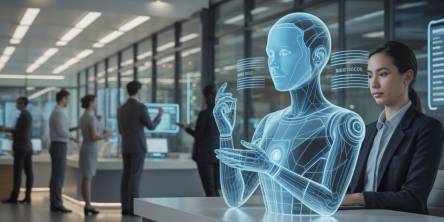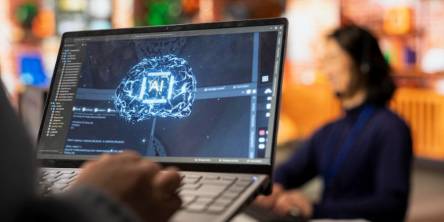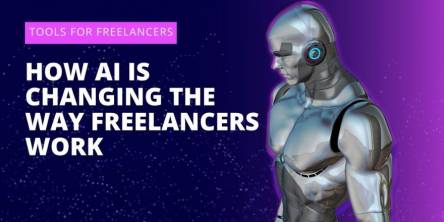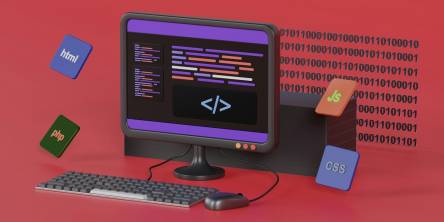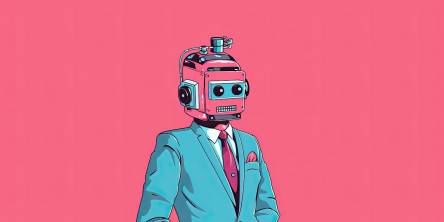How is AI Shaping the Creative Industries

AI is reshaping creativity in music, film, design, and advertising. For those exploring new avenues, a Generative AI Course can help unlock the potential of these innovations. As AI changes how artists work and inspires new forms of creativity, it is important to understand What is Generative AI to deeply understand its role in shaping the future of the creative industries.
Table of Contents
● A New Frontier for Artists and Creators
● Revolutionising Content Creation
● AI in Visual Arts and Design
● Ethical Considerations and Challenges
● The Future of AI in the Creative Industries
● Conclusion
A New Frontier for Artists and Creators
Today, AI is not only a system for data processing and automating some intellectual tasks. Today, its algorithms are designed to create unique content, contribute to the creation process, and even improve creative ideas. This is especially the case with professions that create visual graphics, such as graphic designing, musical production and motion picture production. Applications like DALL-E, MidJourney, and Runway ML allow artists to explore new ideas that manifest images out of concepts. For example, a designer can input instructions developed with several instances of a visual concept, thus reducing the time and energy required.
In the musical arena, the application of AI involves creating brand-new compositions, adapting formation, and putting together new tracks from preexisting pieces, making tracks for a certain mood or concept. Software such as AIVA and Amper Music Musice make tracks without being musicians, with some events requiring input from the users. Writing letters that used to take hours of composing and the subsequent fine-trend refining can be accomplished within minutes.
Revolutionising Content Creation
AI is also changing how the entertainment sector produces and consumes content. AI can analyse scripts, recommend changes to the storyline, and even forecast audience reactions based on data trends in the film and video production industry. Although streaming services like Netflix and YouTube use AI to suggest material based on user behaviour, its use is more extensive. AI-powered tools, for example, may evaluate the film and recommend the best edits, improving the storytelling process without replacing the editor's artistic sense.
AI enables marketers and advertisers to develop more specialised and focused advertising campaigns. Artificial intelligence (AI) systems evaluate customer data, spot trends, and recommend content that appeals to populations. Because AI will take care of the labour-intensive data analysis and optimisation tasks, creative teams can concentrate more on creativity and less on execution.
AI in Visual Arts and Design
Artificial Intelligence is driving a new wave of creativity in the visual arts. For instance, generative art has become quite popular, where artists use algorithms to generate art that is impossible to create by hand. Based on criteria provided by the artist, AI may produce incredibly complex graphics that are a unique fusion of human purpose and machine execution.
AI also makes new kinds of interactive art possible. AI-driven displays that react to audience interactions are being tested at museums and galleries to create dynamic and immersive experiences. This combination of creativity and technology pushes limits and involves spectators in the creative process, resulting in a new kind of art.
Ethical Considerations and Challenges
Undoubtedly, AI is advancing the creative sectors but also raises moral dilemmas. One of the biggest worries is that content produced by AI could conflate original and derivative works. Concerns over intellectual property rights and the validity of the work surface as AI develops its ability to deliver high-caliber writing, music, and artwork. For example, who is the copyright holder of an AI-created work of art? If an artist's creation is used to train an AI model, should they be paid for it?
An additional obstacle is the possibility of uniformity. Even though AI is swift at creating large amounts of content, it frequently uses patterns and trends from already-existing data, which could result in an overabundance of works that look or sound alike. Originality and diversity are critical ingredients for creativity, and there are worries that AI-generated content would not have the same emotional resonance or depth as human-generated material.
Another concern is job displacement in the creative sectors. Some experts are concerned about their jobs in the future as AI grows increasingly proficient at things like writing, editing, and designing. Many experts contend that although AI might replace the human touch in some areas of the creative process, it will never wholly replace intuition, emotion, and cultural context.
The Future of AI in the Creative Industries
AI in the creative sector has a bright future full of limitless creative opportunities. AI technology will probably play a more significant part in creativity as it develops. More advanced AI tools that work well with human producers to produce inventive and intimately personal material could be on the horizon.
AI does not yet replace human creativity; instead, it is a potent tool that supports it. AI gives creators fresh views and automates repetitive processes, enabling them to push the frontiers of what is possible. The creative industries are about to embark on a new phase of innovation, where unparalleled levels of artistic expression will result from the combination of AI technology and human intelligence.
Conclusion
AI is transforming the creative industries by introducing new tools, improving workflows, and opening fresh opportunities. Despite challenges around originality and ethics, AI tends to enhance rather than replace creativity. Artists can now collaborate with AI to elevate their work and explore new possibilities. As AI continues to influence the future of collaborative creation, free resources like those offered by The Knowledge Academy can help artists and professionals stay ahead in mastering these innovative tools.
Similar Articles
AI agents are no longer an experiment in financial institutions. They are becoming the operational engine that powers real time decisioning, proactive fraud defense, precise risk scoring, and automated compliance workflows.
Banks are facing a moment of truth. Customer expectations are rising faster than most institutions can reshape their operating models.
How AI SDRs turn first contact into booked meetings with smart outreach strategies in this step-by-step journey breakdown.
How AI is transforming freelancing by boosting productivity, streamlining tasks, and reshaping the future of independent work.
AI chatbots are reshaping scam prevention with real-time detection, deepfake defense, and personalized protection against cybercriminals.
When I first started working in branding, creating a logo was a long and expensive process. Ordering from a designer required weeks of discussions and a budget that small businesses often couldn’t afford.
Generative AI is not just another addition to the toolbox of products; it will soon serve as the co-pilot for the entire lifecycle process, including discovery and delivery.
Learn how AI code generation speeds up software development by reducing repetitive tasks, improving code quality, and supporting Agile and DevOps teams.
Explore how AI is reshaping the workforce, from emerging jobs and essential skills to global opportunities, and learn how to adapt and thrive in an AI-driven economy.


